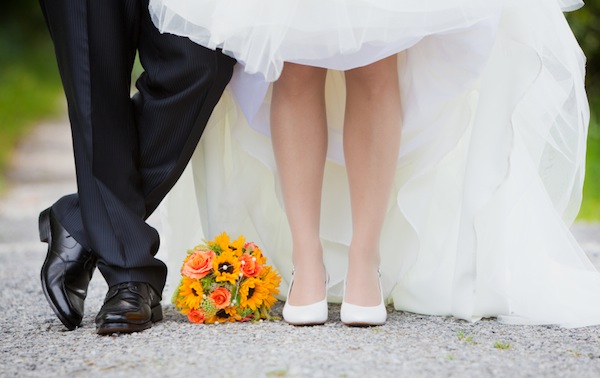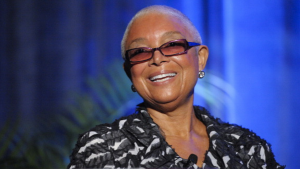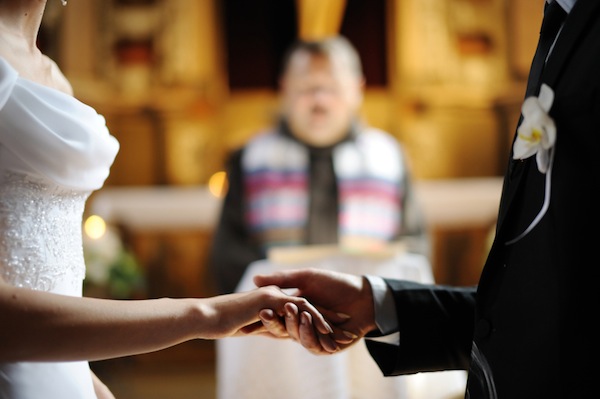
I was standing in front of my house. It was a hot Saturday afternoon and visiting neighbors provided the perfect excuse for not trimming my shrubs.One neighbor was telling a story about a recent boating adventure.
“So, I was with my friend from college and his wife/girlfriend,” he said, “and the boat hadn’t been turned on for years.”
“Wait,” my other neighbor laughed. “Was he with his wife or his girlfriend? There’s a difference.”
He went on to explain that his friend had been dating — seriously dating — this woman for years. She was the mother of his child, so the word “wife,” seemed more appropriate than “girlfriend.”
That’s the thing about words: They have meanings.
However, my neighbor was right that “girlfriend” doesn’t quite encapsulate the gravity of some relationships. “Wife” indicates a vow. “Husband” indicates they’ve made it permanent. Our language lacks an accurate word to describe those close, non-marital bonds.
When we lived in Ithaca, New York, my husband taught at Cornell Law School. It was the first time I had been around people who refused to use the word “husband” or “wife.”
“Are you David’s partner?” a law-school professor asked me.
“In crime?” I asked, jokingly but it was not a laughing matter.
“Husband” and “wife,” of course, are “heteronormative.” That means that when you say them, you are reinforcing heterosexual standards on the world. It means you believe in certain relational roles. It means you need to stop.
Why? Well, what do people in homosexual relationships who have been “married” in their home states call their “significant other?” Husband and husband? Wife and wife?
The reason these terms are no longer viable is because they indicate a gender and gender roles. What if one or both partners are transgendered? When I went to my women’s studies classes at New York University, they taught that there was no difference at all between men and women — so why, they asked, do we have a need to specify genders with our language? Gender, they assured me, was a “social construct.”
But what to call each other, if not “husband” and “wife?”
NPR recently quoted Ben Zimmer, executive producer of the Visual Thesaurus and Vocabulary.com on the topic. ”‘Partner’ sounds very official or contractual. ‘Companion’ sounds unromantic or even euphemistic,” he explained. “’Lover’ might just be too explicit. ‘Boyfriend’ and ‘girlfriend’ are inappropriate for a lot of people, unless they’re [sic] a teenager.”
And so, to describe people who have vowed to stay together for the rest of their lives, we’re left with the most unexciting word ever: spouse.
In California last week, Governor Jerry Brown made the boring word official. “Husband” and “wife” will no longer appear in his state’s marriage laws, replaced by the dual function “spouse.” That way, the forms will reflect the reality that gay people now can marry there.
What bland, non-descriptiveness to describe such a rich relationship.
I remember when my . . . is it okay to say fiancé, or does the one “e” plunge us too deeply into the politics of gender and hate? Anyway, a guy named David and I flew to Paris and married in the upstairs of a restaurant, buying flowers off the street for my bouquet. It was a romantic, crazy, rather spontaneous act with a man I barely knew.
In fact, my mother — in a desperate moment of protest — forgot his name and called him “a rank stranger.” In retrospect, I can see why they were so worried about me marrying someone I barely had dated.
But there in the City of Lights, the preacher pronounced us “husband” and “wife.”
I swallowed hard. Even though some of them were in French, the words carried gravity.
Of course, not because they possessed some sort of magical quality, but because they reflected the serious nature of what we’d done. The words carry implications. I would be a wife, and all that entails. He would be a husband, and all that entails. The label didn’t stop me from having a career while also trying to be a good mom. It didn’t stop David from having a great career while also being a great, nurturing dad. The terms indicated that we’d made vows before God that we’d stay together, even if we barely knew each other and had no idea how the other took coffee.
Eighteen years later, I know he takes his coffee with one Sweet-n-Lo, plus cream. I also know he developed a taste for cream when he went to Iraq and the coffee they had in Diyala province was so terrible he needed cream to camouflage the taste.
That’s the way marriage is, you know. Permanent. It remains, even as people change over decades of kids and deployments and disappointments and financial setbacks and small victories. We’ve stayed together through changes in taste and coffee and personality. In fact, he was a different man when he returned from war. We had two babies and traveled to Africa to pick up our third.
I don’t know. “Spouse” just doesn’t seem to encapsulate this relationship we made official in Paris way back in 1996. It seems like we spend an inordinate amount of time catering to the small fraction of men who don’t want to be masculine and to the small fraction of women who don’t want to be feminine. But David is more than a companion, more than a partner, more than a spouse.
He’s my husband.
Though I do sometimes call him “rank stranger” just for fun.
This first appeared on National Review Online









